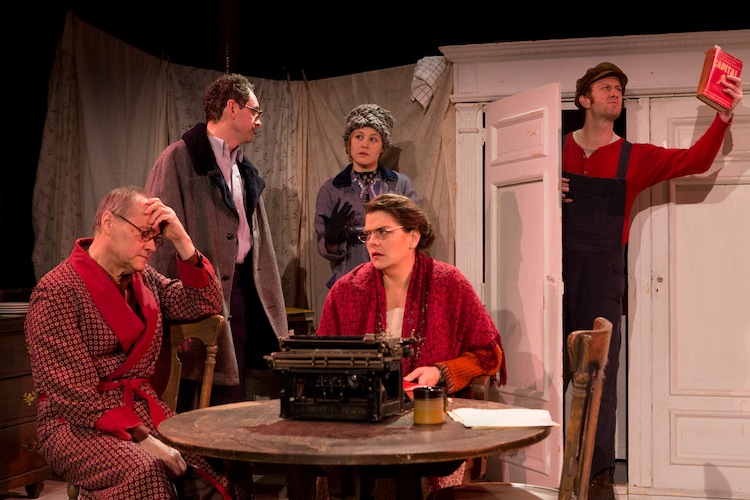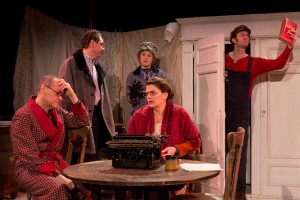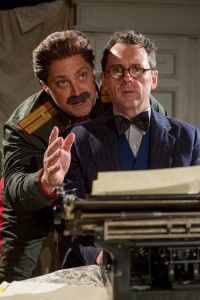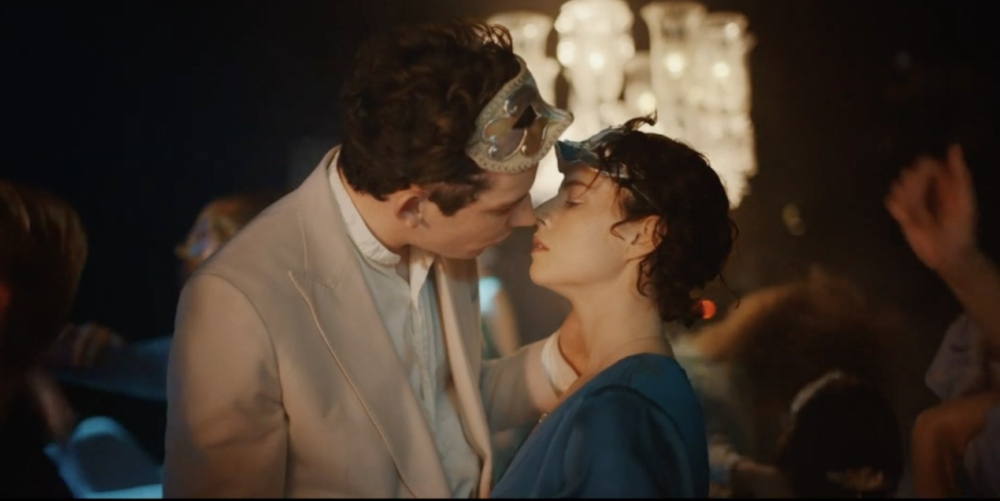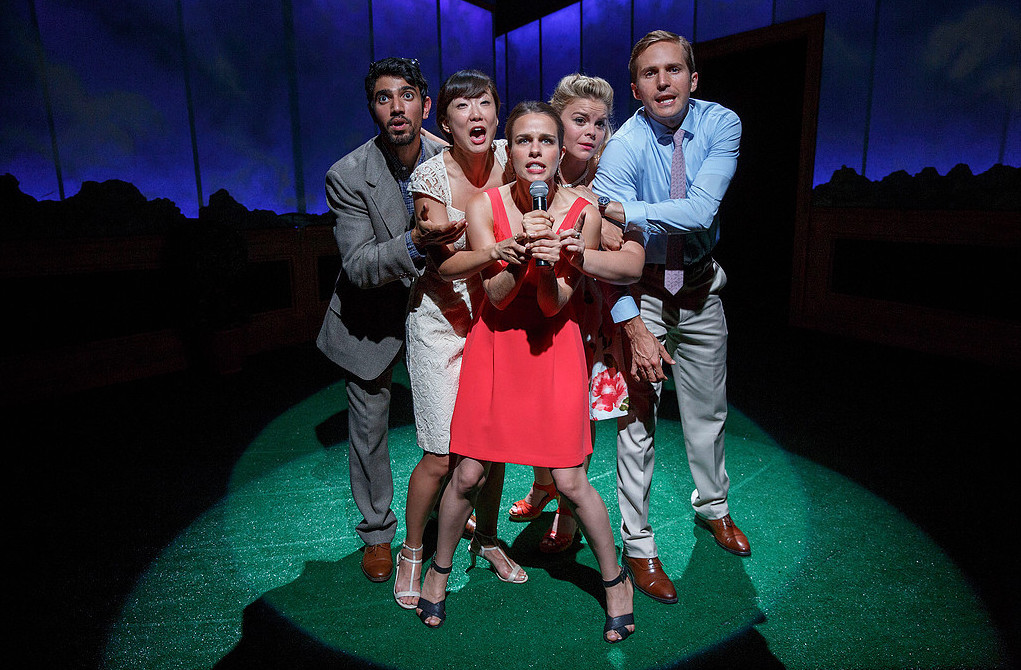by JK Clarke
Despite being one of the 20th century’s most prolific mass murderers—rivaled only by Hitler and Pol Pot—Soviet despot Josef Stalin’s exploits are, shockingly, less widely known. Two of the twentieth century’s literary masterpieces (George Orwell’s terrifying, and ubiquitous novel, 1984 and Arthur Koestler’s Darkness at Noon) vividly describe the fearful living conditions during Stalinist regimes, but still we tend not to think as much of the overwhelming mass killings of the era as we should. John Hodge (best known for the screenplays for the films Trainspotting and Shallow Grave) has set his new play, Collaborators—presently its North American premiere at St. Mary’s Church on the Lower East Side, under the aegis of The Storm Theatre Company—in this same paralyzing darkness of Stalinist Russia.
Collaborators paints a grim picture of life in the Moscow of the late 1930s, giving us an imagined (and simultaneously surreal and comical) view into the life of playwright Mikhail Bulgakov (who went on to be known for the internationally acclaimed novel The Master and Margarita) and how he was (presumably) coerced by the secret police into writing a banal, pandering play about the life of young Stalin. When we meet Bulgakov (Brian J. Carter)—who can best be described as a mashup of the fictional movie character Barton Fink and any number of neurotic roles played by Woody Allen in his early movies—he is living in a crowded coldwater flat with his wife Yelena (Erin Biernard), an older couple, Vasilly (Edward Prostak) and Praskovya (Jessica Levesque), and proud proletariat worker Sergei (the earnest and amusing Josh R. Pyne) who lives in a cupboard and emerges periodically to cheerily spout propagandist rhetoric. They have scant resources for survival, can only dream of fresh fruit and hot showers, and Mikhail seems to be coming down with a serious illness for which he cannot obtain adequate health care. What’s more, his nightly dreams are dominated by his being pursued by a crazed, homicidal Josef Stalin (played terrifically by Ross DeGraw who towers at least a foot over Stalin’s reported 5’4” frame, but is otherwise a dead ringer). But when Mikhail first is instructed by the secret police that he must write the fawning biographical play about Stalin, then receives an anonymous phone call directing him to a secret door in the middle of a subway tunnel, his life changes forever. Behind the door he comes face to face with his cauchemar: Stalin himself. But this Stalin is jovial, brotherly, and has a terrific sense of humor. He’s the kind of despot who slaps you on the back and tells you how much he admires your work (which he does to Mikhail). This character has walked straight out of a Monty Python sketch.
Stalin makes a deal with the petrified Mikhail that he himself will write the play (which he knows has been commissioned by the secret police: “It’s supposed to be kept a secret—a secret—from me!” Stalin chuckles) if Mikhail will, concurrently, do some of his work. Too frightened to disagree, or even think or speak, Mikhail agrees. And before long he finds himself issuing draconian and devastating orders that he, who vehemently opposes Stalin, would have fervently denounced. Meanwhile, his household begins to enjoy the fruits of his “labor”: plentiful hot water, fresh fruit and a car and driver. Mikhail’s moral conflict is palpable.
Elements of Collaborators are very appealing: Robin Haynes, as the secret police officer Vladimir who commissions (nay, demands) the work, is hilarious and complex and his character evolves intriguingly throughout the piece; DeGraw’s Stalin is the paradoxical delight of the play; Rebecca Grazi’s set is authentic and evocative, feeling exactly like a 1930s Russian apartment just might; and Hodge’s play is cleverly written if a bit long-winded at times. Director Peter Dobbins has delivered the play as best he can, but there’s little he can do to save its two major flaws. First is a serious problem with relevance. While Stalin’s reign of terror should not be as forgotten as it is, the details of the moral conflict of the era are just not relatable today, hence it’s difficult to become invested in the characters or the story. Considering that we scarcely acknowledge Stalin’s deeds, it’s hard to delve into minutiae and dilemmas of daily life under his rule. And since we can’t easily connect, the play, at two hours plus, is overly long. What’s more, it’s not easy to sit in the middle of cold, abandoned church on folding chairs on a riser watching such a play when it feels like . . . we might be watching it on a mid-winter night in 1930s Soviet Union.
Collaborators. Through February 13 at Grand Hall in St. Mary’s Church (440 Grand Street, between Pitt and Clinton Streets). www.StormTheatre.com
*Photos by Michael Abrams


